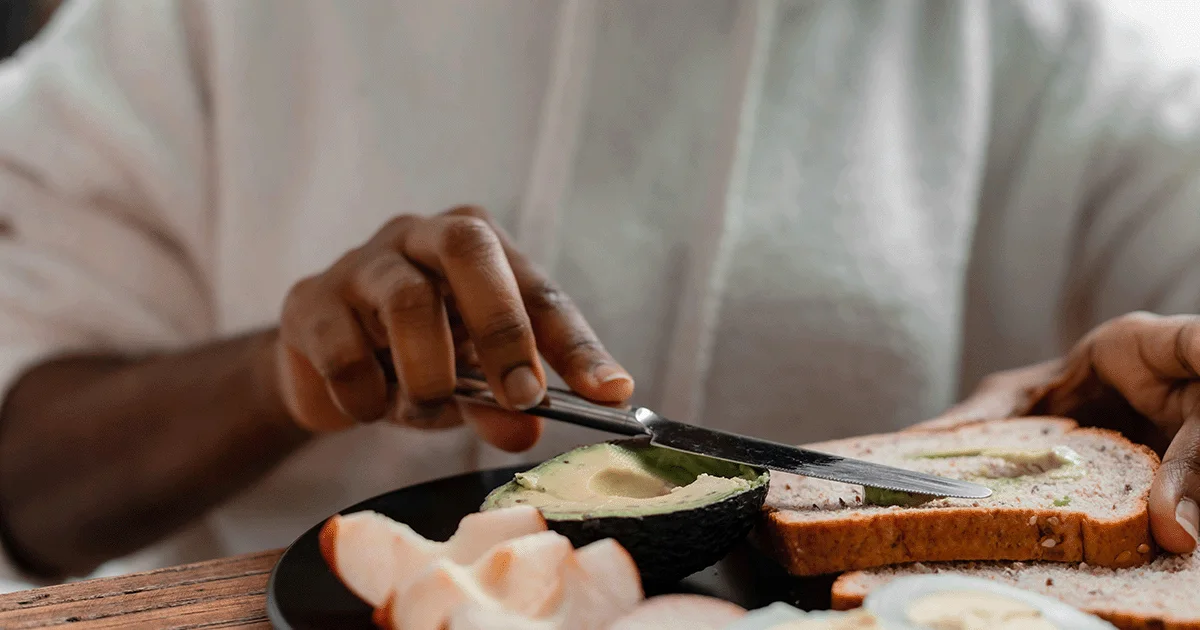Here's what we'll cover
Here's what we'll cover
Here's what we'll cover
Digestive issues can range from a minor inconvenience to an all-out disaster. There are plenty of home remedies, but whether or not they work is a different story.
The BRAT diet is a type of bland diet that some claim to be a lifesaver when dealing with a bout of diarrhea. BRAT stands for bananas, rice, apple sauce, and toast.
The idea is that these foods are easy to digest, and therefore lighten the load on your digestive system. This can improve stomach issues like diarrhea. Let's take a closer look at the BRAT diet and if it's safe to use.
What is the BRAT diet used for?
The BRAT diet seems to be a tale as old as time, often recommended to alleviate diarrhea in small children.
While most home remedies have lost traction in the age of modern medicine, the BRAT diet stuck. Whether it became popular because it works (or because it has a great marketing team) is another question.
BRAT is a household name when you have a little one with the runs. But there’s not much research to show it really works. It was recommended by medical professionals at one point, but since then has fallen out of favor (Mackell, 2005).
When you have diarrhea, you need certain nutrients to help the healing process. A committee from the American Academy of Pediatrics found the BRAT diet too low in protein, fat, and energy and shouldn’t be used for long periods of time (AAP, 1996).
That said, the BRAT diet isn’t all wrong. One study found that rice soup successfully shortened the course of diarrhea in children (Kianmehr, 2016).
The BRAT diet vs. bland diet
When it comes to proven recommendations for settling an upset stomach, some healthcare providers prefer something called the bland diet.
The idea behind this diet is similar to the BRAT method: it’s supposed to reduce the effort your digestive system needs to process the food you eat. That means skipping things that are raw or rough on your tummy (fried foods, spicy stuff, large meals, etc.) and sticking with dishes that are cooked, mushy or soft, and contain little or no spices.
The bland diet is often recommended for people with persistent digestive issues. It can also help those with a history of digestive ulcers or who've recently undergone gastrointestinal surgery (Weir, 2020).
Foods you can eat on a bland diet
While there isn’t much evidence that BRAT will help, a short course of it probably won’t hurt. So what does the research say?
The number one recommendation when you have diarrhea is making sure you get enough fluids. Diarrhea, especially in young children, can quickly cause dehydration, which can be dangerous.
Even when it’s hard to keep anything down, try and fill up on fluids. To entice your system a little more, try clear broth or popsicles. Another option is oral rehydration solutions like Pedialyte, which are available over-the-counter at a local pharmacy.
On the bland diet, you can eat foods that are soft, easy to digest, and low in fiber. Examples of things you can eat include (Weir, 2020):
Broth or clear liquids
Cream of wheat
Eggs
Fruit juices, such as apple juice
Lean protein (skinless)
Low-fat dairy products
Pudding
Popsicles
Tofu
Vegetables like beets, green beans, spinach, and carrots are encouraged, but others like cabbage, cauliflower, onion, and peppers are not. Like all other foods on the bland diet, it’s best to cook veggies to make them easier on your stomach.
Foods to avoid on an upset stomach
When your belly is bubbling, your best bet is to avoid things that might make a stomach ache worse. These include:
Fatty foods (fried foods, full-fat dairy, fatty meat)
Whole grains
Pickles
Nuts and seeds
Dressings and sauces
Acidic fruit
You also should avoid caffeine and alcohol, as well as medications like ibuprofen and aspirin (Weir, 2020).
A short bout of diarrhea or vomiting typically resolves on its own, but if it persists for more than five days (or 24 hours in children) or you can’t keep liquids down at all for a full day it’s time to speak to a healthcare provider.
If you have frequent, intermittent episodes of stomach upset, even if they’re not constant, there might be an underlying condition that requires diagnosis and treatment.
DISCLAIMER
If you have any medical questions or concerns, please talk to your healthcare provider. The articles on Health Guide are underpinned by peer-reviewed research and information drawn from medical societies and governmental agencies. However, they are not a substitute for professional medical advice, diagnosis, or treatment.
References
American Academy of Pediatrics (AAP). Practice parameter: the management of acute gastroenteritis in young children. American Academy of Pediatrics, Provisional Committee on Quality Improvement, Subcommittee on Acute Gastroenteritis. (1996). Pediatrics, 97 (3), 424–435. Retrieved from https://pubmed.ncbi.nlm.nih.gov/8604285/
Gunasekaran, D., Chandramohan, A., Karthikeyan, K., Balasubramaniam, B., Jagadeesan, P., & Soundararajan, P. (2020). Effect of green banana (Musa paradisiaca) on recovery in children with ACUTE watery Diarrhea with No Dehydration: A randomized controlled trial. Indian Pediatrics, 57 (12), 1114–1118. doi:10.1007/s13312-020-2063-8. Retrieved from https://link.springer.com/article/10.1007/s13312-020-2063-8
Kianmehr, M., Saber, A., Moshari, J., Ahmadi, R., & Basiri-Moghadam, M. (2016). The Effect of G-ORS Along With Rice Soup in the Treatment of Acute Diarrhea in Children: A Single-Blind Randomized Controlled Trial. Nursing and Midwifery Studies, 5 (2), e25852. doi:10.17795/nmsjournal25852. Retrieved from https://www.ncbi.nlm.nih.gov/pmc/articles/PMC4993029/
Mackell, S. (2005). Traveler's diarrhea in the pediatric population: Etiology and impact. Clinical Infectious Diseases, 41 (Supplement_8), S547–S552. doi:10.1086/432950. Retrieved from https://academic.oup.com/cid/article/41/Supplement_8/S547/569758
Smith, L. G. (1988). Home treatment of mild, acute diarrhea and secondary dehydration of infants and small children: An educational program for parents in a shelter for the homeless. Journal of Professional Nursing, 4 (1), 60–63. doi:10.1016/s8755-7223(88)80075-9. Retrieved from https://www.sciencedirect.com/science/article/abs/pii/S8755722388800759
Weir, S-B. S., Akhondi, H. (2020). Bland Diet. StatPearls Publishing. Treasure Island, FL. Retrieved from https://www.ncbi.nlm.nih.gov/books/NBK538142/










